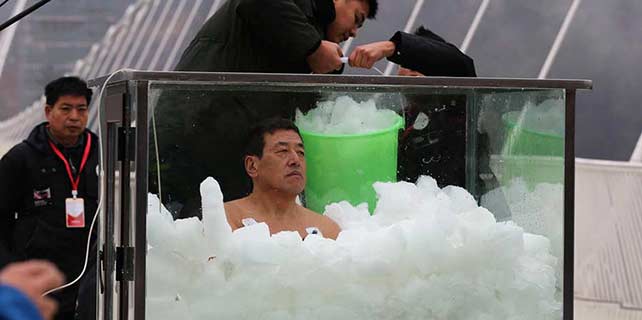China to introduce environmental tax for enhanced pollution control
 |
|
Overseas tourists visit Tiantan Park in Beijing on Tuesday. [Photo by Zou Hong / China Daily] |
The Environment Tax Law was approved at the end of the National People's Congress (NPC) Standing Committee meeting which concluded Sunday afternoon.
The law, to enter into force on Jan 1, 2018, will be key to fighting pollution, according to Wang Jianfan, director of the Ministry of Finance tax policy department.
China has collected a "pollutant discharge fee," since 1979. In 2015, it collected 17.3 billion yuan ($2.5 billion) from some 280,000 businesses, Wang said.
However, some local governments exploit loopholes and exempt enterprises which are otherwise big contributors to fiscal revenue. For years, regulators have suggested replacing the fee system with a law.
"The new law will reduce interference from government," Wang told a press conference. It will also improve tax payers' environmental awareness, forcing companies to upgrade technology and shift to cleaner production, Wang said.
Under the new law, companies will pay taxes ranging from 350 yuan to 11,200 yuan per month for noise, according to their decibel level. It also set rates of 1.2 yuan on stipulated quantities of air pollutants, 1.4 yuan on water pollutants and a range of five to 1,000 yuan for each ton of solid waste.
For instance, polluters will pay 1.2 yuan for emission of 0.95 kilograms of sulfur dioxide and 1.4 yuan for one kilogram of chemical oxygen demand (COD). Carbon dioxide (CO2) is not included in the levying list.
Provincial-level governments can raise the rates for air and water pollution by up to ten times after approval by the people's congresses. Lower rates may also be applicable if emission is less than national standards.
The law only targets enterprises and public institutions that discharge listed pollutants directly into the environment.
Punishment for evasion or fraud are not specified, but offenders will be held liable in line with the law on administration of taxation and the environmental law.
With more than a year still to go before the law comes into effect, Wang said authorities will make preparations including drafting a regulation for implementation of the law.
He added that revenue will all go to local governments, and will not reduce their capability to spend on environment protection.









